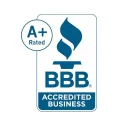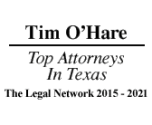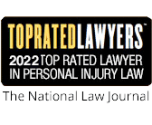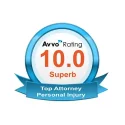by Tim O’Hare
Follow O’Hare and Koch Law Firm on Facebook, Twitter, LinkedIn & Google+.
 Tort reform is a hot political topic, and one that many Americans support without fully understanding what it is. So what is tort reform? Is it really a good thing? Are there alternative options that are better for the general public? Let me explain.
Tort reform is a hot political topic, and one that many Americans support without fully understanding what it is. So what is tort reform? Is it really a good thing? Are there alternative options that are better for the general public? Let me explain.
What is tort reform?
A tort is simply defined as a “civil wrong.” It is prohibited conduct, but not criminal. Examples of a tort: a car accident caused by someone’s negligence resulting in injury to the party not at-fault, or a defective product that causes an injury. Sometimes (although rare) a jury will award the plaintiff in an injury case hundreds of thousands of dollars (if not more) in punitive or exemplary damages. Punitive and exemplary damages are intended to punish the wrongful party and to serve as a warning to ensure their negligent actions, and similar actions by others, never happen again. Tort reform takes many different approaches, including the idea that limits should be placed on the amount of noneconomic damages (pain and suffering, mental anguish, etc.) a plaintiff can win in an injury case.
Is tort reform a good thing?
Indeed, there are cases where a “runaway jury” intending to make a point to big business and corporate America awards a plaintiff millions of dollars. Take, for example, the McDonald’s hot coffee case of the 1990’s. A woman who received third degree burns when her McDonald’s coffee spilled in her lap was awarded nearly $3 million by a jury. The jury’s intention was to ensure that McDonald’s (and other restaurants) lowered the temperature of their hot beverages to prevent this type of accident from happening again. Though the plaintiff in this case, a woman named Stella Liebeck, did suffer significant injuries that required a great deal of painful medical procedures, many people believe her award by the jury was excessive.
But, these cases are extremely rare. When is the last time to heard about a runaway jury awarding excessive damages to a Plaintiff? In fact, for every case like the McDonald’s case, there are thousands of cases where an injured individual does not receive the compensation he or she truly needs or deserves because the rules are slanted to favor insurance companies.
What many people also don’t realize is that in the McDonald’s case, a judge reduced Ms. Liebeck’s award to $480,000, and she actually settled for much less than that in order to avoid the appeals process.
Lawyers are an easy target due to the plethora of money hungry commercials that we are bombarded with on TV and on billboards along highways in every city across the country. As a result of politicians attempting to get involved in situations they aren’t really equipped to deal with, the American people are losing out.
Tort reform strips the American people from their right to a trial by jury in an injury case — a right that has been part of our system of governance since our country was founded.
Is there an alternative?
Tort reform should punish the lawyers who unlawfully solicit cases, not the victims who have been injured and need access to our court system. Yes, there are a few lawyers who break the rules, and an occasional “runaway jury” that hands out an excessive reward to prove a point. But more importantly, every day, there are real people who are injured through no fault of their own, and politicians are stripping away their rights in favor of insurance companies to score political points with constituents, who truly don’t understand the effects of the laws being enacted.
O’Hare and Koch Law Firm will always stand up and fight for the rights of those who have been injured and deserve compensation to cover their medical costs, lost wages and more. We will always fight for the little guys. For the underdogs.
If you have been seriously injured in an accident, contact the experienced legal team at O’Hare and Koch Law Firm to speak with a Dallas personal injury attorney.
Call O’Hare and Koch Law Firm for your FREE Case Evaluation
972-960-0000 or Toll-Free 888-960-0020









